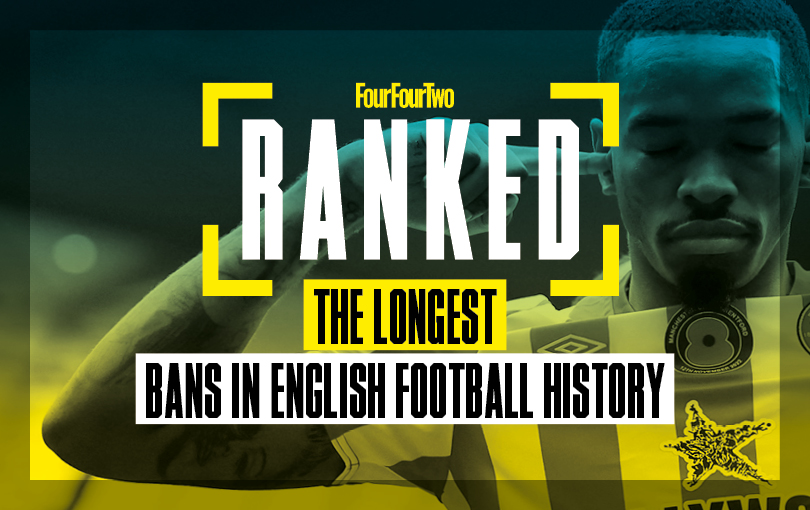
The list of the longest bans in English football is a chequered collection of crimes ranging from the bizarre to the disgraceful.
While a straight red card earns a player a three-match suspension, the powers that be – known as the FA – are able to issue harsher sanctions where they see fit. This can be for breaching betting regulations, violent conduct or even taking performance-related substances.
So what are the biggest punishments ever handed out?
The longest bans in English football history: 16. Paolo Di Canio – 11 games
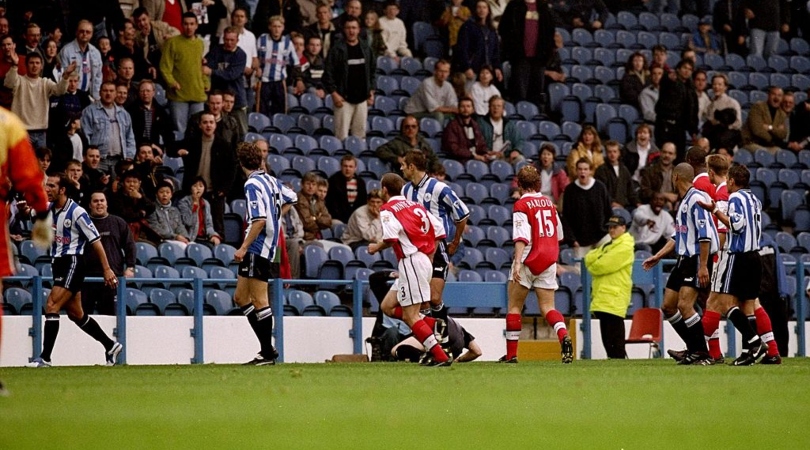
While being sent off by Paul Alcock during Sheffield Wednesday's 1998 Premier League clash with Arsenal, Di Canio took particular umbrage with the referee. Instead of walking solemnly towards the dressing room, the Italian pushed Alcock over, subsequently receiving an 11-game ban and a £10,000 fine.
That wasn't the first time Alcock faced a physical altercation with a player during a game, though.
In 1992, during a game between West Brom and Exeter City, Frank Sinclair pushed and clashed heads with Alcock after he awarded a penalty to City. The FA punished him with a nine-game ban.
15. Charlie Mitten – six months
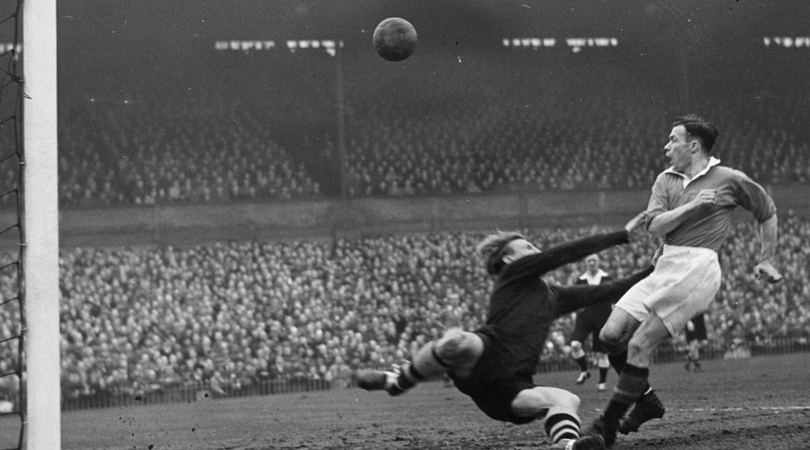
While on a tour of Colombia with Manchester United in 1950, Colombian side Independiente Santa Fe offered Charlie Mitten a contract on significantly more money than he was receiving by the English side.
Mitten stayed in South America for a year while still registered, under FIFA regulation, by Manchester United. Colombia were not a part of FIFA at the time, though they joined at the end of his first year in the country, subsequently meaning he couldn't play for Independiente Santa Fe due to his registration still being with United.
Upon his return, Mitten was subject to a ban by the FA, who fined him six months' wages and banned him from playing for the same period.
14. Joss Labadie – six months
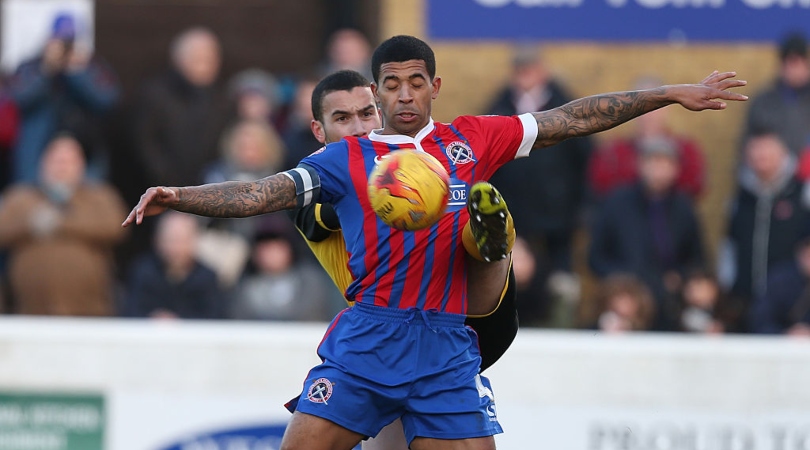
While playing for Torquay United in 2014, Joss Labadie was handed a ten-match ban and a £2,000 fine for biting Chesterfield's Ollie Banks. It was alleged that he also bit Armand Gnanduillet in the same game.
As a result of his prior offences, Labadie, now at Dagenham & Redbridge in 2015, received a six-month ban from football for biting the finger of Stevenage defender Ronnie Henry.
13. Ivan Toney – eight months

Brentford striker played much of the 2023/24 season with a cloud hanging over his head, waiting to find out if he'd fall victim to a lengthy ban when he was accused of 232 breaches of the Football Association's betting rules.
Well, the England star was found guilty when the season was all but complete, in May 2023, sentenced to a good eight months without football. Toney's ban is up on January 17 2024 but he was back in training by the autumn.
12. Rio Ferdinand – eight months
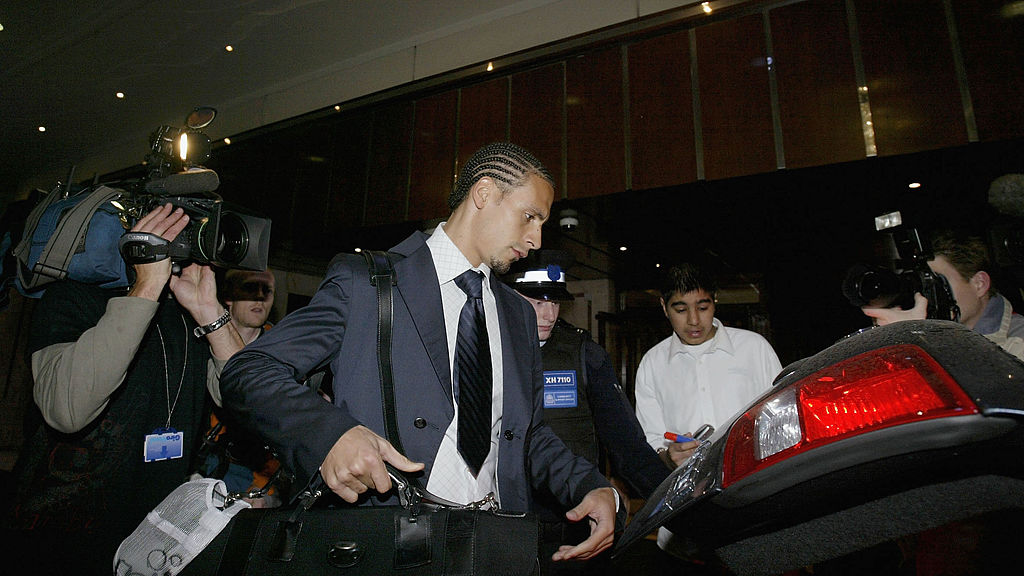
Ferdinand was banned from playing for eight months from January 2004 after he missed a drug test, meaning he missed Euro 2004 with England as a result.
An independent tribunal found him guilty of misconduct after he failed to take a test in September 2003, despite being selected to give a sample to UK Sport doping officials at the United’s training ground.
11. Mark Bosnich – nine months
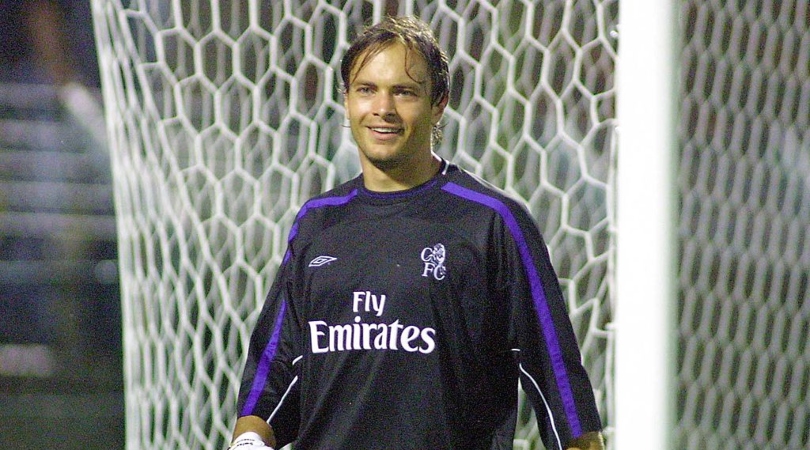
Bosnich had his Chelsea contract terminated when he failed a drugs test for cocaine in April 2003, with the FA handing him a suspension of nine months. He soon retired thereafter, though he still maintained his innocence.
“Yes, I took drugs but only once my career was over. I have no regrets. I owe football absolutely nothing,” Bosnich said. “At the time of my drugs test in November 2002 I was not taking cocaine… I got talking to a girl who later admitted that she had slipped the drug into her drink. I must have had a sip of her glass.”
10. Eric Cantona – nine months
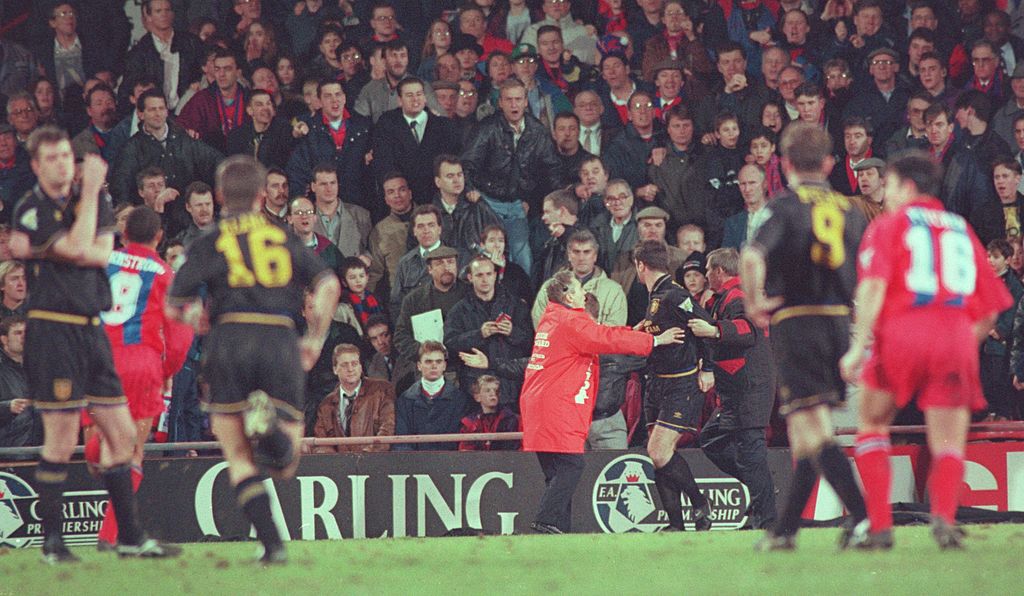
Sent off during Manchester United's game against Crystal Palace in 1995 at Selhurst Park, Cantona trudged down the touchline. However, Matthew Simmons taunted the Frenchman as he did so, causing Cantona to launch himself over the advertising hoardings and kung-fu kick the Palace fan.
As well as being suspended from football for nine months by the FA, Cantona was also ordered to complete 120 hours of community service.
9. Sandro Tonali – 10 months
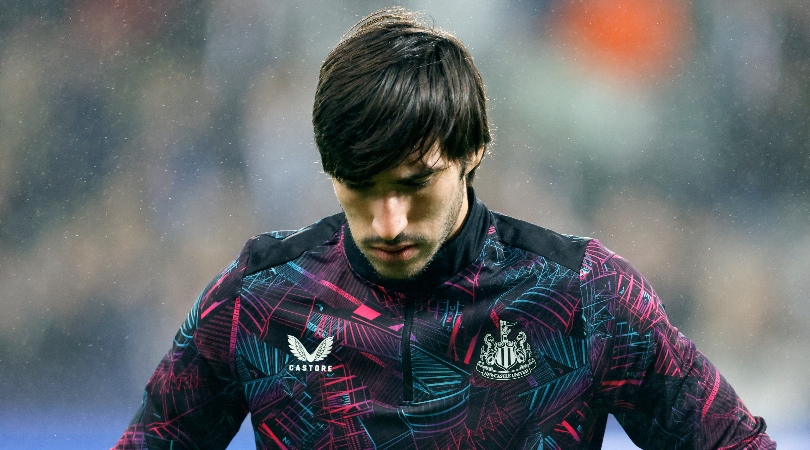
A ban that was never enforced by the FA but another governing body entirely, Newcastle found their £55 million marquee summer signing ruled out for the season just weeks into his Toon career.
Sandro Tonali was suspended for 10 months for breaking Italy's gambling regulations and ordered to spend the following eight months continuing a rehabilitation programme. Tonali's agent admitted his client had a gambling addiction, but this was a particularly tough ban: it meant Tonali would miss not just his first season in England but Euro 2024 in its entirety.
8. Abel Xavier – 12 months
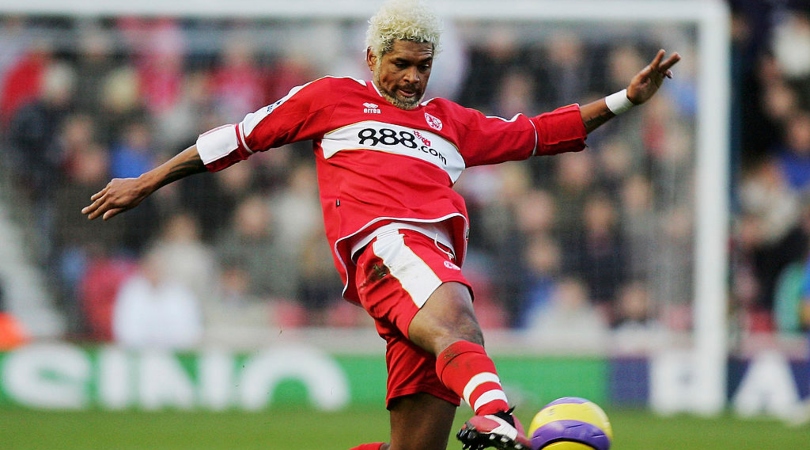
Xavier became the first Premier League player to be banned for taking performance-enhancing drugs in 2005, when he was found guilty of taking the anabolic steroid methandrostenolone (also known as dianabol). Other players had been found guilty of taking recreational drugs, but none tested positive for PEDs until Xavier.
A Middlesbrough player at the time, the FA banned him initially for 18 months before reducing it to only a year.
7. James Harris – 12 months
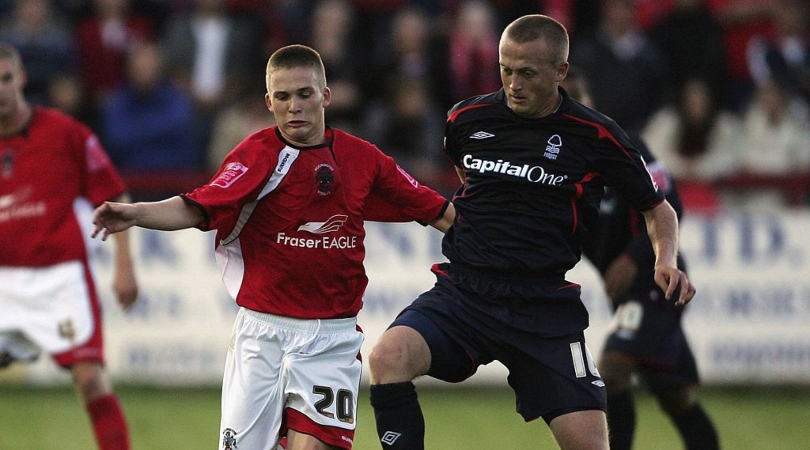
The FA had "serious concerns that the outcome of the match may have been fixed" when it transpired that Jay Harris and four of his Accrington Stanley team-mates bet they would lose in a game against Bury in 2009. Harris received the harshest punishment compared to his team-mates, though, because he was the only player to feature in the match.
David Mannix received ten months, Peter Cavanagh and Robert Williams eight, and Andrew Mangan was issued with a five-month ban. The FA stopped short of charging anyone with match fixing.
6. Billy Cook – 12 months
In April 1915, a referee sent Oldham Athletic defender Billy Cook off in a game against Middlesbrough for persistent fouling. Cook, convinced he had done nothing wrong, refused to leave the pitch.
Consequently, the referee had to abandon the game with over 30 minutes still remaining because Cook still refused to head back to the dressing rooms. The FA subsequently suspended him from football for 12 months, annoyed with the game having to be abandoned due to his actions.
5. Joey Barton – 13 months
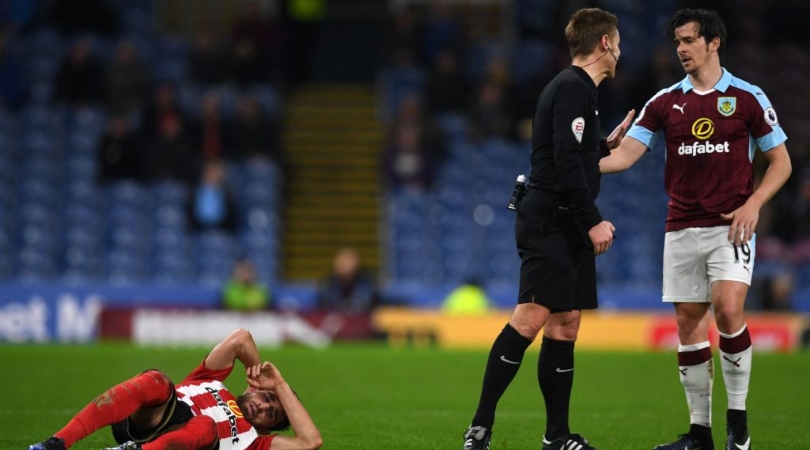
In April 2017, the FA banned Barton from football for 18 months after he admitted to betting-related charges. It later transpired he was found guilty of placing 1,260 bets on football matches between 2006-2016, including some that he had played in.
A couple of months after his initial ban, it was reduced by five months on appeal.
However, that certainly isn't the only lengthy suspension the former midfielder has received during his career.
During training in 2007, Barton assaulted his Manchester City team-mate Ousmane Dabo, leaving him unconscious with several blows to his head. Dabo had to go to hospital as a result of the injuries, which included a detached retina. Barton received a four-month suspended prison sentence and was charged with violent conduct by the FA, banned for six matches with a further six-match ban suspended for two years.
Then in the final game of the 2011/12 season against Manchester City, while at QPR, Barton was sent off for violent misconduct after elbowing Carlos Tevez in the face. He immediately kicked Sergio Aguero in the back and attempted to headbutt Vincent Kompany.
The FA subsequently issued a 12-game ban, punishing him for all three counts of violent conduct.
4. Chris Buckley – 17 months
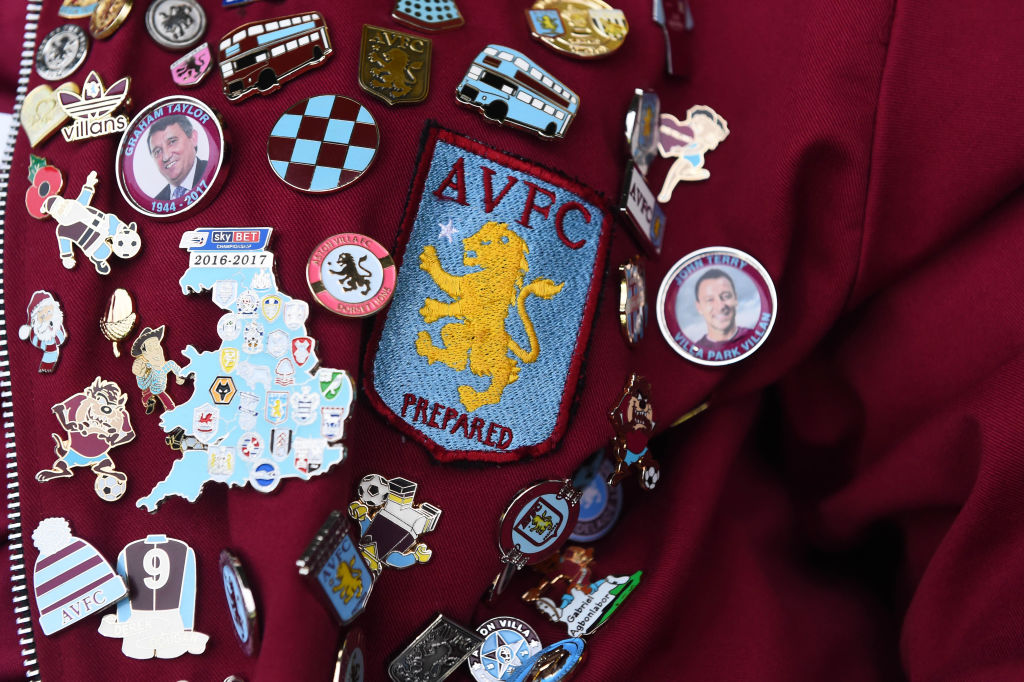
Despite having signed a new contract with Aston Villa, but not receiving £250 he believed was owed to him in 1912, Chris Buckley refused to play for the Villains at the start of the 1912/13 season.
Villa claimed he was in breach of contract, suspended him indefinitely and reported it to the League. The League commission decided Buckley’s demands were illegal and suspended him until April 1914.
3. Bradley Wood - Six years
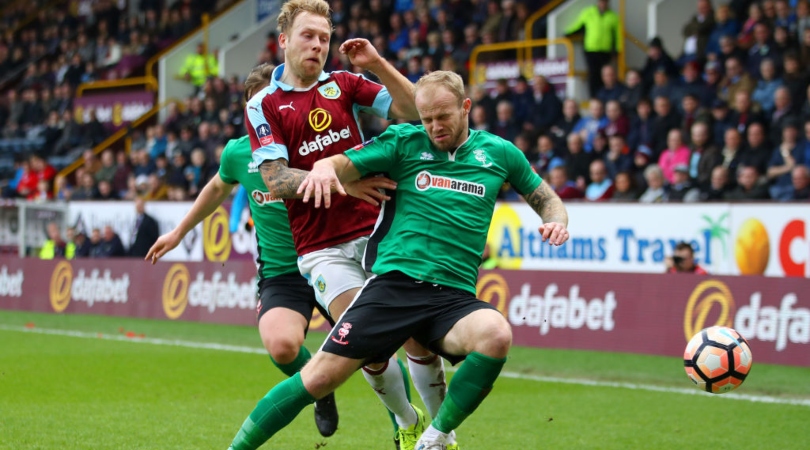
The FA handed former Lincoln right-back Bradley Wood a six-year ban in April 2018, after a tribunal found he had deliberately been booked during the Imps' FA Cup victories over Ipswich Town and Burnley during the 2016/17 season.
Suspicions were raised when potential winnings totalled around £10,000. Seven people bet on him to be booked, two of whom were close friends and the others friends of those. Wood denied the charges but admitted to 23 other betting offences.
The FA banned him for five years for the deliberate bookings, and a further year for the offences he admitted. The 31-year-old will be able to return to football in March 2024.
2. Enoch West - 30 years
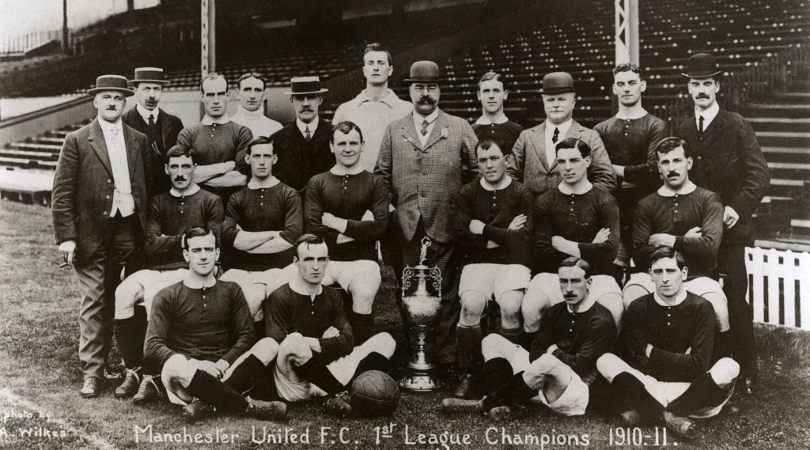
In 1915, West, three fellow Manchester United players and four Liverpool footballers were banned for life for match fixing. The other seven players had their bans lifted when they enlisted into the army for World War I, though, with West the only exception.
Refusing to enlist, his ban stood for fully 30 years until 1945, when he turned 59.
1. Olafur Gottskalksson - Lifetime ban
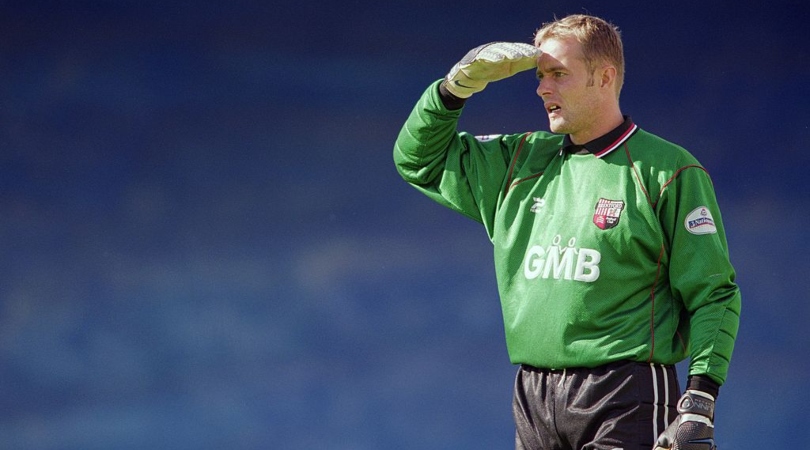
In January 2005, doping testers arrived at Torquay United's ground, Plainmoor, for routine tests on players. Goalkeeper Olafur Gottskalksson was chosen to give a sample, but disappeared shortly after, knowing his cocaine addiction would show up in the results.
Torquay United issued a statement saying the 10-time Icelandic international had gone missing. He later revealed he had gone to Amsterdam.
"It's a real shame, I saw nothing else in the situation but to let myself go," Gottskalksson later said. "I went to the Netherlands. Just took the next plane to Amsterdam and was there for a week, 10 days in total oblivion.
"I was advertised as missing in the papers here at home and didn't realize what I was doing to the people here at home. You only listen to your own bulls**t."
In June 2005, the FA announced that an independent disciplinary commission had banned Gottskalksson from football indefinitely for failing to take that drugs test. Now 55, he hasn't played football since.







